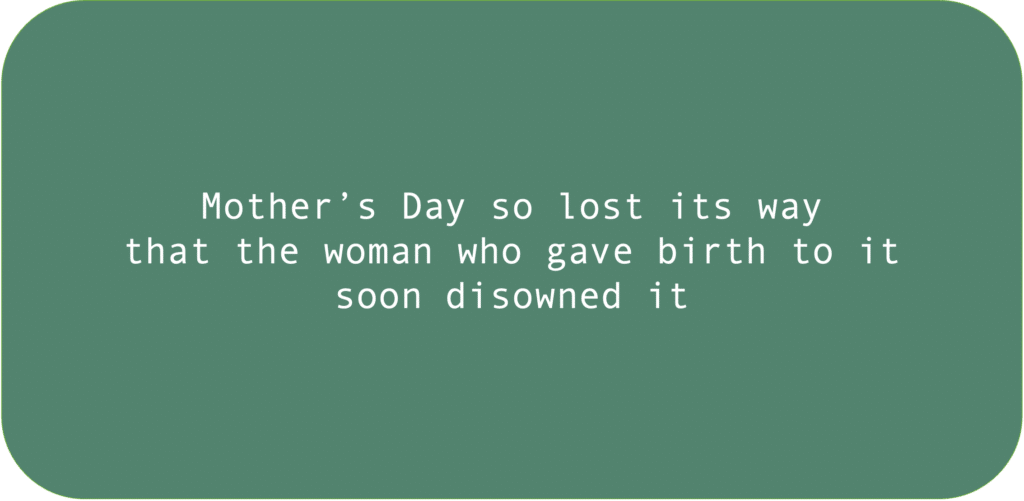
Happy Mother’s Day is a national contrivance
US President Woodrow Wilson designated the second Sunday in May as Mother’s Day. But one wonders why he was the first to honor mothers in this way in May 1914. Why didn’t any of his predecessors make this proclamation to honor mothers?
Perhaps Wilson was merely the first president shameless enough to exploit maternal love for political gain. After all, no child needs a presidential proclamation to show their mother the love and appreciation she’s due every day.
Frankly, Mother’s Day smacks of little more than a political-cum-commercial contrivance. That’s why I never participated in this pagan ritual — even when my mother was alive. She never complained. Granted, she had 16 other children who participated with religious zeal.
Anna Jarvis, the mother of Mother’s Day, disowns it
The profound regret Anna Jarvis felt toward the Mother’s Day celebrations she gave birth to speaks volumes. Her regret profoundly shaped my own aversion to the day.
To honor her mother’s wish, Jarvis launched a campaign in 1905 for this day “to honor the best mother who ever lived, yours.” That campaign led to Wilson’s proclamation nine years later.
Except that:
Jarvis couldn’t stand the idea of people spending so much money on extravagant flower arrangements, sappy greeting cards and overly priced chocolates. … Her protests [against this commercialization of Mother’s Day] escalated to arrests for public disturbances. … Jarvis died in a sanitarium in 1948.
(CBS News, May 13, 2018)

Of course, it’s all too easy to see why Jarvis ended up in a sanitarium. After all, that commercialization she was protesting now accounts for nearly $25 billion in sales every Mother’s Day. Indeed, Jarvis had to be insane to think she could stem that unsentimental tide of “human progress.”
Sorry for your loss
It only deepens my cynicism when people presume I miss my mother more acutely on this day than any other. I always felt the annoyance this caused was too personal for public comment. However, that all changed when I came across Mary Cella’s 2018 op-ed “I’m So Sorry for My Loss“ in The New York Times.
I couldn’t resist sharing it. Mind you, Cella did not vent my disdain for the commercialization that defines Mother’s Day. Incidentally, I have a similar disdain for others like Father’s Day, Valentine’s Day, and Christmas Day, which we all know has little to do with Jesus Christ.
But Cella waxed conflicted enough to put the inherently perverse nature of this day into perspective.
This is my ninth motherless Mother’s Day, and while I still feel a little that people who take their mom out to brunch to celebrate are bragging, I’d like to assure you all that I’m fine.
The worst part of losing my mom is the fact that she’s no longer alive. … About the 100th worst part is how uncomfortable most people get when I tell them my mother is dead.
(The New York Times, May 12, 2018)
So please spare me (and yourself) the faux and annoyingly belated condolences.
And all the motherless children say, Amen!